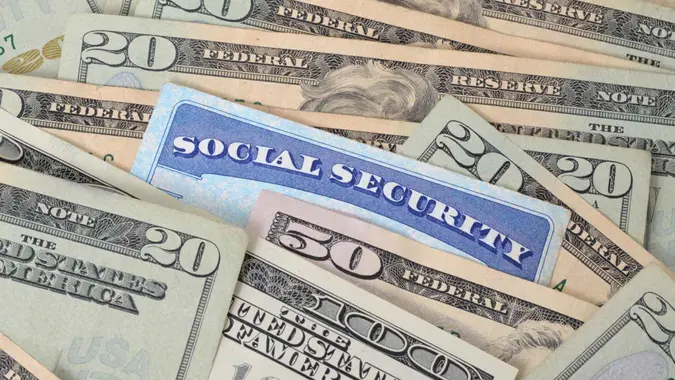Ways the New Social Security Rules Could Impact Fixed-Income Retirees

Commitment to Our Readers
GOBankingRates' editorial team is committed to bringing you unbiased reviews and information. We use data-driven methodologies to evaluate financial products and services - our reviews and ratings are not influenced by advertisers. You can read more about our editorial guidelines and our products and services review methodology.

20 Years
Helping You Live Richer

Reviewed
by Experts

Trusted by
Millions of Readers
Over 70 million Americans receive Social Security benefits, according to the Social Security Administration (SSA). And 67% of retirees rely on their Social Security checks for more than 50% of their retirement income. With that, any rule changes to the Social Security program are closely followed by millions of fixed-income retirees.
Under the One, Big, Beautiful Bill and the Social Security Fairness Act, some rules affecting Social Security were changed. Let’s see how these new rules might impact fixed-income retirees.
Lower Federal Income Tax Burden
The One, Big Beautiful Bill offers a tax break to most of America’s seniors. Under the new bill, 88% of all seniors receiving Social Security benefits will pay no tax on those benefits, according to a White House press release. For many retirees on a fixed income, the lower tax bill may help them stretch their income to cover their spending needs.
Notably, seniors in some states may still face state income taxes on their Social Security payments.
Restored Benefits for Certain Public Employees
The Social Security Fairness Act was signed into law by then-President Joe Biden in early January. Importantly, it ended the Windfall Elimination Provision and Government Pension Offset. Previously, some public employees received reduced Social Security benefits. But, under this new rule, some retired public employees will see their Social Security benefits rise.
This may boost the retirement income of teachers, firefighters and police officers in many states, as well as some retired federal employees.
Higher Cap on Working Income
If you choose to collect Social Security before your full retirement age and continue working, the federal government might dock your earnings when you earn above a certain threshold. For example, in 2025, the SSA withholds $1 of a worker’s benefits for every $2 earned over $23,400. The penalty can make it difficult to get ahead.
The new rules involve a higher cap, which means retirees can earn more before they are penalized. In 2026, the earnings limit is estimated to be $24,360. This gives working seniors a bit more leeway in their ability to work and collect Social Security to make ends meet.
Modernized Payment Methods
Back in March, President Donald Trump signed an Executive Order titled “Modernizing Payments To and From America’s Bank Account.” Essentially, this EO does away with paper checks and other forms of payment. Instead, the federal government will switch over to making all payments directly to recipient bank accounts via direct deposit.
For those already receiving digital payments, this change might not pop onto their radar. But for those without a bank account or a preference for paper checks, it might represent an inconvenience. The good news is that you’ll no longer have to wait for paper checks to wind their way through the snail mail system. Instead, you’ll seamlessly receive your benefits in your bank account.
Final Take To GO
Many American retirees rely heavily on Social Security income to cover their retirement expenses. As the rules change, it’s helpful to stay on top of the new details to avoid getting blindsided.
 Written by
Written by  Edited by
Edited by 
























